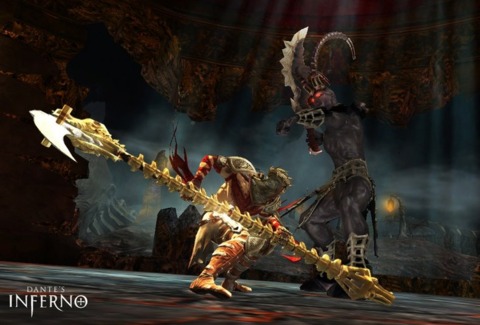Game industry to grow 6% in 2010 - Analyst
Pacific Crest Securities' Evan Wilson believes 34 percent digital sales growth will buoy stagnant packaged goods; PS3-only console predicted to see sales increase.
The sky began to fall for the global economy in late 2008, but many analysts maintained during the first part of 2009 that the gaming sector was, if nothing else, recession-resilient. Of course, the tenor of that conversation had changed by the end of 2009, when The Great Recession helped sink US retail sales by 8 percent on the year. Overseas markets saw similar declines, as the Japanese industry fell 6.9 percent and the UK market dropped off by 18 percent in 2009.

This week, Pacific Crest Securities' Evan Wilson predicted that the packaged goods portion of the game industry will remain flat in 2010. However, he expects the industry as a whole to grow by 6 percent, thanks to a 34 percent surge in digital sales.
Wilson predicated much of his analysis for how 2010 will play out on lessons learned from last year. To begin, Wilson explained that software sales fell in 2009 due to a combination of factors. However, he said those same factors are only part of a problem that could turn 2010 into a worse year economically than 2009.
"We believe that fairly obvious factors...such as game delays, the economy, and the fall of the music genre, have simply added to the one main issue that we have faced all cycle: growth of development costs has outstripped sales growth," he said.
To counter this, Wilson notes that many publishers and developers took the painful step of headcount reduction and studio closures in 2009.
"The reductions were directly correlated to elimination of unprofitable games," he said. "The industry mourned the loss of promising new intellectual property, the closure of once-famous studios and the departures of marquee developers; over and over, the output looked high-quality and was well loved, but at the end of the day was unprofitable. Publishers came to the realization that certain IP would never be profitable, and thus began to hack away at themselves."
Wilson also said that third-party publishers are put in the difficult position of having to produce games on par with first-party-funded efforts such as God of War III and Halo Reach. Still, third-party publishers will try by the aforementioned cuts as well as streamlining their development pipeline.
"Electronic Arts commented to us at a recent investor meeting that it expected its game costs to stabilize based on the investments in IP and engines that it has made this cycle," Wilson said. "It pointed to Dante's Inferno, a title that took only 24 months from conception to launch, as its template going forward. This may be a good attempt to compete at a lower price, but it is unlikely, in our view, that this type of title will really be able to compete and produce a meaningful profit."
As for digital sales, Wilson said that while a 34 percent sales climb is significant, it is well behind the 45 percent growth in 2009 and 40 percent rise in 2008. "Several pieces of digital revenue are growing significantly faster, but with declines in mobile gaming excluding the App Store and the relatively flat nature of World of Warcraft, which accounts for the majority of subscription revenue, overall digital revenue should end up growing at a more modest pace," he said.
Moving to hardware, Wilson believes that the PlayStation 3 will sell 5 million units, up from 4.3 million in 2009. Xbox 360 sales will remain flat year-over-year at 4.8 million, he predicted. The analyst went on to say that dwindling Wii sales will result in a decline in total hardware figures, with the console expected to sell 8.6 million units on the year.
Slipping console sales aren't the only problem facing Nintendo in 2010, however. Wilson also said that many third-party publishers have largely abandoned the hope of turning a profit on games produced for the Wii.
"Third parties to a certain extent have given up hope that they will be able to wrest share from Nintendo and make significantly more profit on the platform. We think it is likely that aggregate Wii development and releases from the big Western publishers will decline versus last year. For publishers, this means lower costs in the near term but also less opportunity to make money on very significant portion of the video game business."
As for the implications for Nintendo, Wilson said that it will have to keep Wii owners coming back by itself. The analyst also believes that waning third-party support will influence the way Nintendo designs its next console. "Because Nintendo would like to see sales of third-party Wii games increase, and because third parties have been disappointed when attempting to develop for the Wii, we believe it is likely that Nintendo may support more 'traditional' controls for its next console, alongside motion controls," he said.
Though far from confirmed, Wilson believes Nintendo will launch a successor to the Wii next year, sticking to a five-year console cycle. "In the next generation, we believe Nintendo's growth opportunity will be to focus on core-audience features like better visuals and a traditional controller, in an attempt to both cater to the core gamer and reinvigorate third-party software support. It will also likely extend its development of nontraditional control schemes."
Got a news tip or want to contact us directly? Email news@gamespot.com
Join the conversation